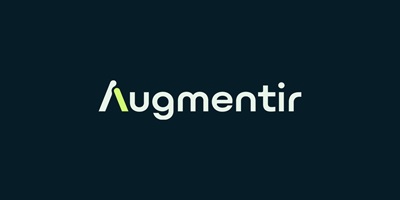The construction industry stands at a critical crossroads. While demand for construction projects continues to surge across residential, commercial and infrastructure sectors, the industry faces a persistent challenge threatening its growth: a severe shortage of skilled workers, specifically in building materials manufacturing. According to the Bureau of Labor Statistics, construction job openings remained stubbornly high at 338,000 as of April 2023, highlighting a skilled labor crisis that reverberates throughout the construction supply chain.
The Evolution of Workforce Challenges in Manufacturing
The impact of this workforce shortage creates a cascading effect throughout the construction supply chain. When building materials manufacturers struggle to maintain optimal production levels due to staffing challenges, construction projects face delays, costs increase and the broader economy feels the strain. The situation has become particularly acute as experienced workers retire, taking decades of valuable knowledge with them, while fewer young people enter the industry.
Skills development in this context transcends mere training. It requires cultivating a comprehensive set of competencies including problem-solving, critical thinking, creativity, and adaptability, while fostering a culture of continuous learning. Traditional methods of tracking employee skills and managing workforce development through spreadsheets are no longer sufficient, especially as manufacturing environments become more autonomous and frontline workers take on greater responsibility.
Harnessing AI and Data to Transform Worker Development
According to the McKinsey Global Institute, manufacturing is the single most data-prolific industry, generating an astonishing 1.9 petabytes of data annually. Yet manufacturers are only beginning to tap into how AI can leverage that data to upskill, train, support and engage frontline workforces. Rather than viewing the workforce challenge solely as a hiring problem, forward-thinking industry leaders are using this data to revolutionize how they support and develop their frontline workforce.
AI implementation in manufacturing isn’t about replacing workers or adding artificial intelligence as an afterthought to existing systems. Instead, it serves as the foundation for augmenting workers and creating an adaptive, responsive approach to building capabilities in industrial workforces. AI-powered platforms that include generative AI assistants, copilots, and agents can act on this workforce data and provide personalized, real-time guidance tailored to individual needs and accelerate skill acquisition thereby reducing time-to-competency. These systems can function as “digital coaches,” available whenever workers need support during their workflow processes. This approach is particularly crucial in semi-structured processes where workers need to adapt to variable conditions while maintaining quality and safety standards.
Building a Sustainable Future for Manufacturing
The future of building materials manufacturing depends on operationalizing learning—integrating training into daily operations and emphasizing a systematic process of acquiring new skills. AI-enabled systems support this by providing real-time guidance, capturing and sharing tribal knowledge, and enabling targeted workforce development initiatives. Systems that incorporate generative AI agents can streamline the capture and digitization of critical tribal knowledge from senior, more experienced workers. These generative AI agents can then transform that captured tribal knowledge into personalized work instructions and guidance for less-experienced workers, offering an immediate solution to closing the skills gap. These platforms create a continuous loop between required skills endorsements and actual work performance, enabling manufacturers to identify both high performers and those who need additional support.
Companies implementing these solutions report faster onboarding, fewer expert callouts, and consistent closures of skill gaps across their workforces. The technology not only helps address immediate staffing challenges but also creates more engaging and satisfying work environments that help attract and retain talent. Smart connected workforce technology allows experts to guide trainees through tough tasks remotely, while frontline workers can access standard procedures and processes via AI assistants, view micro-targeted content, and get expert instructions instantly on the shop floor.
Conclusion
The skilled labor shortage in construction and building materials manufacturing presents a significant challenge, but also an opportunity to reimagine how we support and develop our workforce. Unlike fears of obsolescence in many white-collar jobs, AI is augmenting the skills of frontline workers while leveraging manufacturers’ data to help personnel become more productive, engaged and satisfied in their roles.
As worker churn rates continue to rise and traditional training methods prove insufficient, AI-enabled connected worker solutions have evolved from a “nice-to-have” to a critical tool for maintaining safety, productivity and quality in modern manufacturing environments. The path forward isn’t about choosing between human workers and technology—it’s about finding innovative ways to combine the two, ensuring that manufacturers have the tools, training, and support needed for success in an increasingly complex industrial landscape.






























